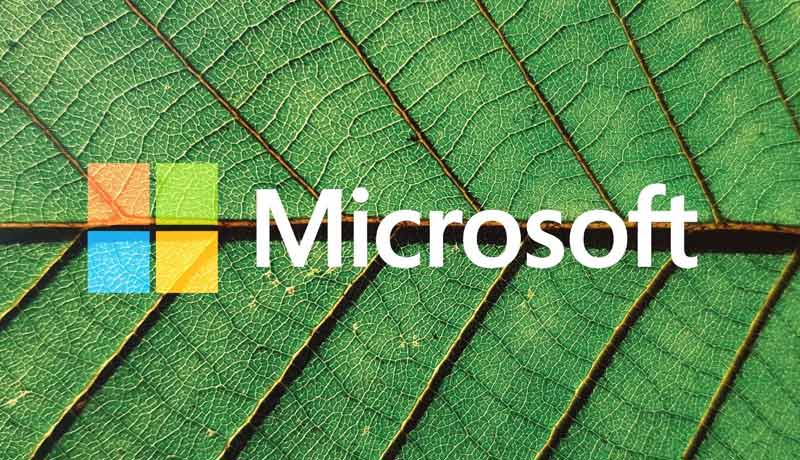
Microsoft released its annual sustainability report ahead of Earth Day, providing partners and customers with an in-depth look at the company’s 2021 progress toward becoming a carbon-negative, water-positive, zero-waste organization by 2030.
“When we laid out our sustainability commitments in January 2020, we pledged transparency in our progress,” said Jeroen Van Hees, Sustainability Lead, Microsoft UAE. “By sharing the lessons of the previous year from around the world, it is our hope that our partners and customers can duplicate our successes.”
Microsoft committed $471 million to its Climate Innovation Fund in 2021, as well as $100 million to Breakthrough Energy’s Catalyst initiative. In order to meet its pledge to remove all historic emissions (those emitted since the company’s inception in 1975) by 2050, the company extracted approximately 2.5 million metric tons of carbon dioxide from the atmosphere. Microsoft also invested in water replenishment projects, which are expected to yield 1.3 million cubic metres of volumetric benefits. It has planned five Circular Centres for waste recycling around the world and has committed to protecting more than 17,000 acres of land for the preservation of flora and fauna.
Microsoft continued its work toward a sustainable economy in the United Arab Emirates by assisting its customers in meeting their carbon targets. Enova, a joint venture between Dubai’s Majid Al Futtaim and Abu Dhabi’s Veolia Environmental Services, used the intelligent Microsoft Cloud to save 320 million kWh of energy, 5 million cubic meters of water, and 210,000 metric tons of CO2. In 2021, Enova will implement a new business model based on ICONICS and other tools powered by Azure cloud services. This resulted in an additional 2% in energy savings and a 17% to 25% increase in staff efficiency across 28 medium-to-large sites.
In June of last year, Dubai Electricity and Water Authority (DEWA) used Microsoft technologies to implement the latest digital-twin technologies, the Internet of Things, advanced cybersecurity, AI, and smart-building management solutions at the utility’s new headquarters, Al Shera’a, which is set to be the world’s tallest, largest, and smartest government Net Zero Energy Building. In addition, Etihad Airways announced a new partnership with Microsoft in November to leverage cutting-edge technologies in pursuit of its sustainability goals.
